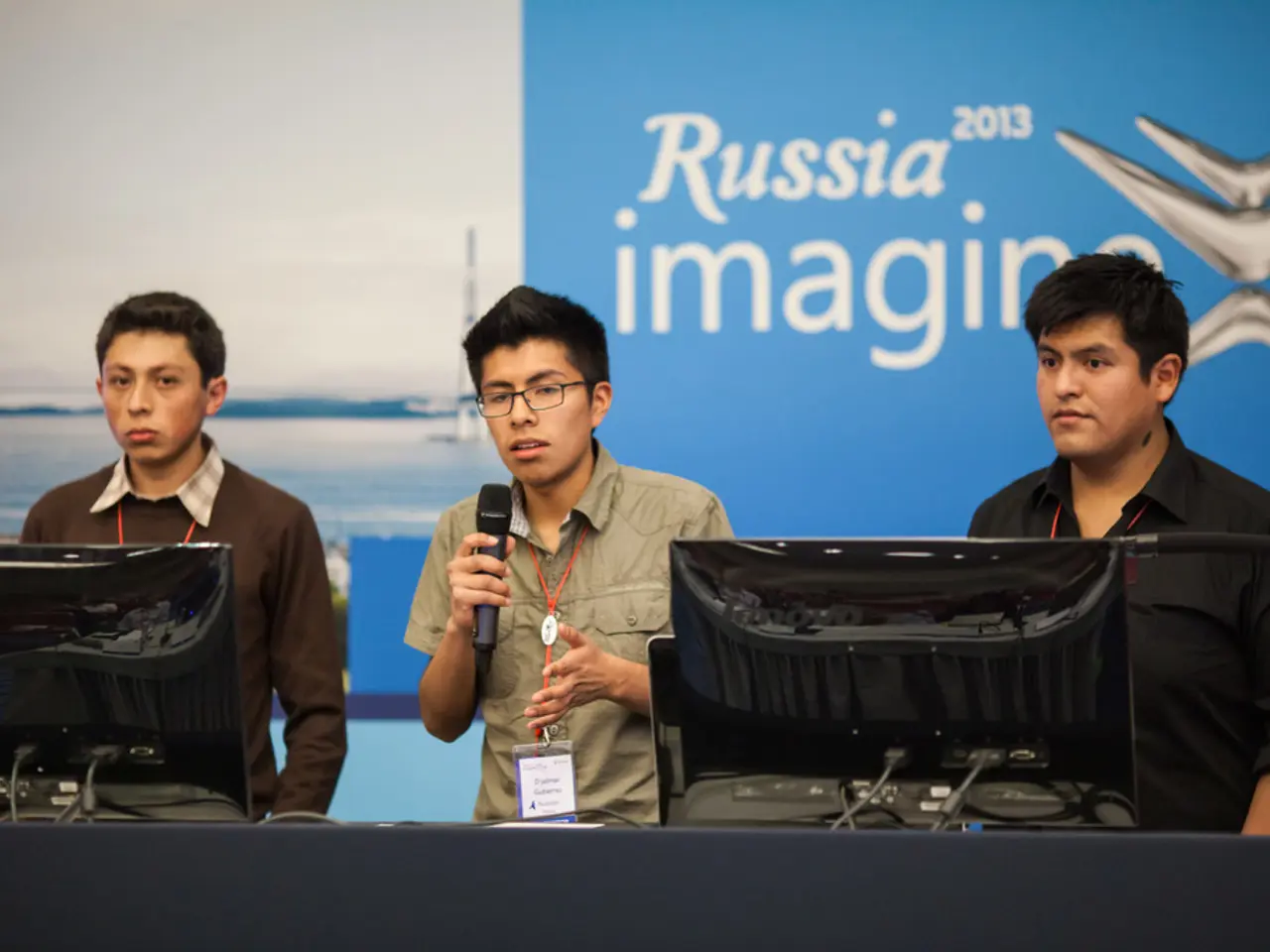Swift development in IT abilities due to the increasing influence of artificial intelligence
In a groundbreaking report titled "Africa's AI Skills Readiness Revealed," SAP has highlighted the urgent need for AI-related skills among African companies. According to Genevieve Koolen, HR Director at SAP Africa, this need is near-universal this year.
The report reveals that all companies surveyed expect the demand for AI skills to increase in 2025, with nearly half anticipating a significant increase. This surge in demand is causing concerns, as poor access to AI-ready skills is already causing negative impacts among African organizations. These include failed innovation initiatives, delays in completing projects, greater pressure on teams, and an inability to take on new client projects.
However, African organizations are not backing down. They are taking practical steps to equip their workforce with AI-ready skills and address the shortage of AI expertise.
One such approach is the development of collaborative AI-powered workforce development platforms. These platforms, born from partnerships between governments, private sectors, and training providers, use labor market data and AI to predict skill demands and guide personalized reskilling. This ensures workers receive targeted training aligned with emerging AI-driven industry needs, helping to avoid skills mismatches during economic transitions.
The African BPO sector, a major employer, is also implementing AI to augment repetitive tasks. This frees workers to focus on higher-value roles requiring judgment and creativity. Organizations are actively “training up” staff through AI-enabled tools and learning programs to meet evolving job requirements.
Moreover, Rwanda’s launch of the National Health Intelligence Centre demonstrates how integrating AI into government health systems also serves as an upskilling platform for health sector workers. This exposes them to advanced data analytics and AI applications, thus building AI competency in critical sectors.
Beyond individual organizations, continental initiatives such as the Africa Declaration on Artificial Intelligence seek to align AI development with African values and prioritize skill development to build a competitive, inclusive AI workforce. However, geopolitical and regional challenges pose risks to harmonized skills development and broader AI adoption.
To tackle these challenges, African organizations are partnering with educational institutions and other industry skills development initiatives to accelerate the availability of work-ready skills. They are also investing in longer-term skills development, including reskilling and upskilling, to prepare for a potential shortfall in critical AI-related skills this year.
The rapid pace of technological advancement means that any organization that fails to invest in skills development may find themselves unprepared and unable to leverage new innovations, potentially eroding their competitiveness and leading to significant impacts to the bottom line.
To support employees during this shift, human capital management technologies can help HR teams identify concerns and support employees through periods of uncertainty. Ninety-four percent of organizations surveyed offer training at least monthly to employees, but the latest data indicates a drop in the allocated budget for skills development, with not a single organization spending more than 10% of their HR or IT budgets on skills development and training this year.
Despite these challenges, African organizations are demonstrating a commitment to AI-driven skills development. They understand that investing in their workforce is not just a responsibility, but a strategic imperative for success in the digital age.
- The report by SAP, "Africa's AI Skills Readiness Revealed," indicates that all businesses surveyed expect an increase in the demand for AI skills by 2025, with many anticipating a significant rise.
- To tackle the shortage of AI expertise and support their workforce, African organizations are developing collaborative AI-powered workforce development platforms and partnering with educational institutions for skills development.
- The African BPO sector is using AI to automate repetitive tasks, allowing workers to focus on higher-value roles, while also providing AI-enabled tools and learning programs to meet evolving job requirements.
- Recognizing the urgent need for AI-related skills, Rwanda launched the National Health Intelligence Centre, integrating AI into government health systems as an upskilling platform for health sector workers.




